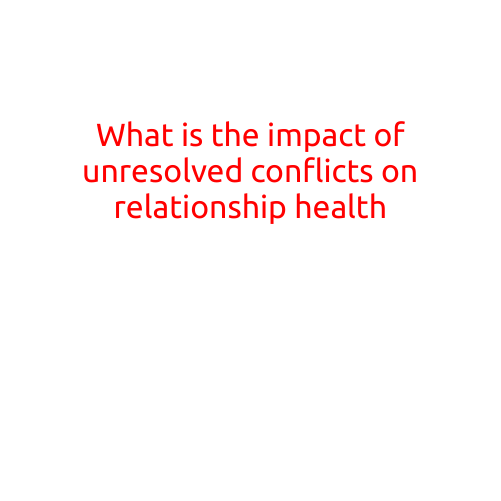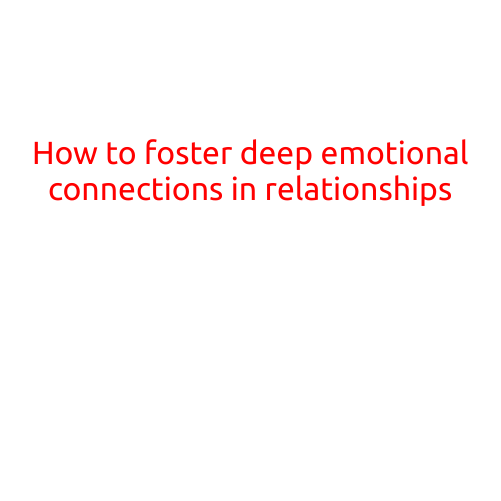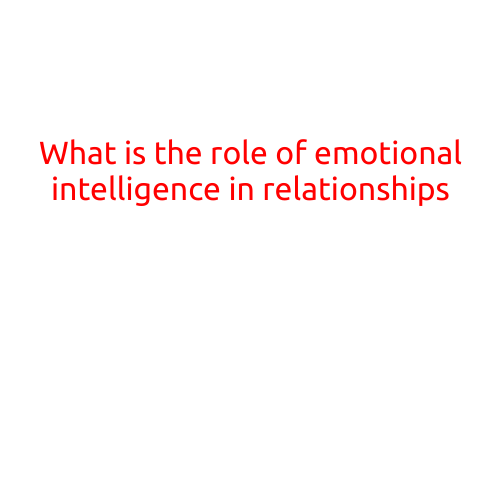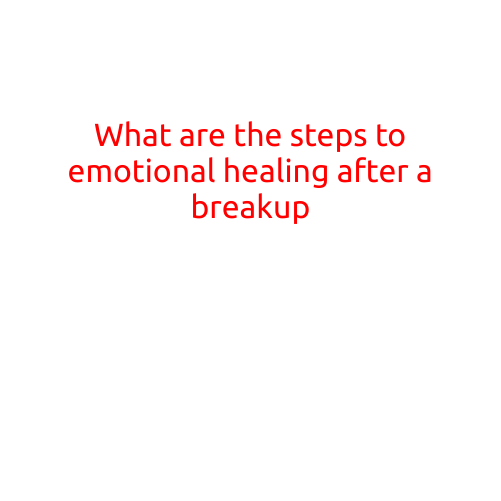
What is the Impact of Unresolved Conflicts on Relationship Health?
When conflicts arise in a relationship, it’s natural to feel upset, frustrated, and even angry. However, if these conflicts are left unresolved, it can have a significant and negative impact on the overall health of the relationship. In this article, we’ll explore the effects of unresolved conflicts on relationship health and why it’s crucial to address them in a constructive manner.
The Consequences of Unresolved Conflicts
Unresolved conflicts can lead to a range of negative consequences, including:
- Emotional Distance: When conflicts are left unresolved, partners may start to feel emotionally disconnected from each other. This can lead to feelings of loneliness, isolation, and disconnection.
- Resentment and Anger: Unresolved conflicts can breed resentment and anger, which can quickly escalate and become overwhelming.
- Lack of Trust: Ignoring or unresolved conflicts can erode trust in the relationship, leading to feelings of uncertainty and insecurity.
- Inflexibility: Unresolved conflicts can make partners more inflexible and rigid, leading to stalemate and stagnation in the relationship.
- Reduced Intimacy: When conflicts are left unresolved, it can affect the emotional and physical intimacy in the relationship, leading to feelings of disconnection and isolation.
- Deterioration of Communication: Unresolved conflicts can lead to a breakdown in communication, making it challenging to discuss important issues and feelings.
- Escalation of Conflicts: Unresolved conflicts can lead to an escalation of conflicts, making it more challenging to resolve issues in the future.
- Damage to Self-Esteem: When conflicts are left unresolved, it can damage one’s self-esteem and confidence, leading to feelings of inadequacy and low self-worth.
The Impact on Relationship Quality
Unresolved conflicts can have a significant impact on the overall quality of the relationship. If left unchecked, conflicts can:
- Lead to a Lack of Satisfaction: Unresolved conflicts can lead to dissatisfaction in the relationship, making it feel stagnant and unfulfilling.
- Cause Physical and Emotional Exhaustion: The stress and tension associated with unresolved conflicts can lead to physical and emotional exhaustion, making it challenging to maintain a healthy and fulfilling relationship.
- Affect Conflict Resolution: The more conflicts are left unresolved, the more challenging it becomes to resolve future conflicts, leading to a vicious cycle of unresolved issues.
- Influence Marital Satisfaction: Unresolved conflicts can negatively impact marital satisfaction, making it challenging to maintain a strong and healthy bond between partners.
How to Address Unresolved Conflicts
While unresolved conflicts can have a significant impact on relationship health, it’s never too late to address them. Here are some tips to help you resolve conflicts in a constructive manner:
- Communicate Openly: Practice open and honest communication, both during and after conflicts.
- Stay Calm: Remaining calm and composed can help to diffuse tension and prevent escalation.
- Listen Actively: Listen actively to each other’s concerns and perspectives.
- Work Together: Collaborate to find a mutually beneficial solution.
- Seek External Help: If necessary, seek external help from a therapist or counselor to work through unresolved conflicts.
Conclusion
Unresolved conflicts can have significant consequences on relationship health, leading to emotional distance, resentment, and a breakdown in communication. If left unchecked, conflicts can damage the quality of the relationship, leading to dissatisfaction, exhaustion, and a lack of intimacy. However, by communicating openly, staying calm, and working together, it’s possible to resolve conflicts and strengthen the bond between partners. Remember, addressing unresolved conflicts is crucial to maintaining a healthy and fulfilling relationship.





